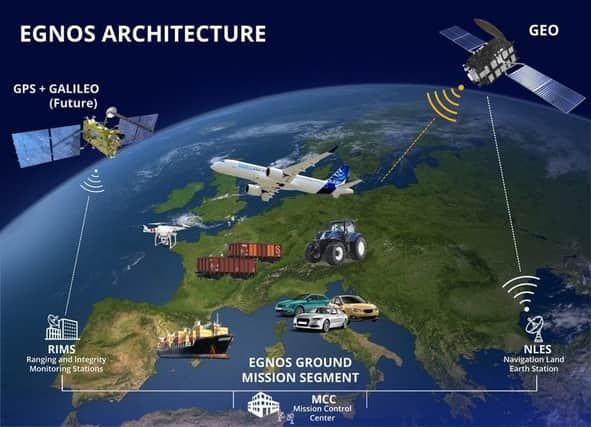EGNOS 'vandalism' trebles Barra flight cancellations


In the case of Barra, the rate has trebled and of 100 cancellations this year so far, all but 11 were weather related, most of them due to visibility issues which EGNOs would have addressed.
Jonathan Hinkles, managing director of Loganair, this week told the Gazette that the decision to leave EGNOS after Brexit was “an act of state-sponsored vandalism” which the airlines want to see redressed.
Advertisement
Advertisement
EGNOS stands for the European Geostationary Navigation Overlay Service. It was launched in 2009 and one function was to enhance safety for small airports which do not have their own navigation support systems, including all those in the Islands.
In addition, it also supported navigation for shipping.
The issue was highlighted last week when some delegates travelling to Stornoway from around the UK for an Islands Forum meeting on “connectivity” had flights cancelled because of visibility. The Forum was chaired by Levelling-up Secretary, Michael Gove.
Mr Hinkles said: “I think we got everyone there eventually with extra flights on Monday but these are exactly the type of conditions in which EGNOS would have made a difference.
“We have a fleet replacement programme which was planned when the UK had the aviation equivalent of SatNav. Then the government turned the SatNav off.
Advertisement
Advertisement
“As a result, we are incurring additional cancellations and diversions which have to be reflected in the fare structure. It also feeds through to economic damage to island economies, from the Scillies to Shetland, which is difficult to measure but we all know is there”.
Mr Hinkles said it was not necessary to be an EU state to participate in EGNOS. For example, Jordan and Georgia are members. However, withdrawal was a consequence of Brexit. When the licence ran out in 2021, the UK would have had to pay an annual fee of £38 million to remain within the system.
He said it was Kwasi Kwarteng, when Business Secretary, who decided not to pay. “There was some vague talk about having our own system as part of the UK Space Strategy but that has been binned and there is nothing in its place”.
Mr Hinkles said the most obvious solution is for the UK to re-join EGNOS but that was politically difficult for the Conservatives because it would be reversing something that arose from Brexit.
Advertisement
Advertisement
Earlier this year, the All Party Group on General Aviation at Westminster commissioned a report from the consultants, Oxera, on the economic impacts of withdrawing from EGNOS
The report noted: “The UK is currently the only state in the G20 without useable access to a precise satellite-based navigation system”.
"Reinstating EGNOS would lead to benefits by improving the safety of UK aviation and improving the reliability of vital lifeline and essential services, particularly to island and remote communities in the UK),” it added.
“It will also improve resilience and reduce costs for airports, even if they have an alternative precision navigation aid available. Reinstating EGNOS would also lead to benefits in other sectors, including agriculture and maritime”.